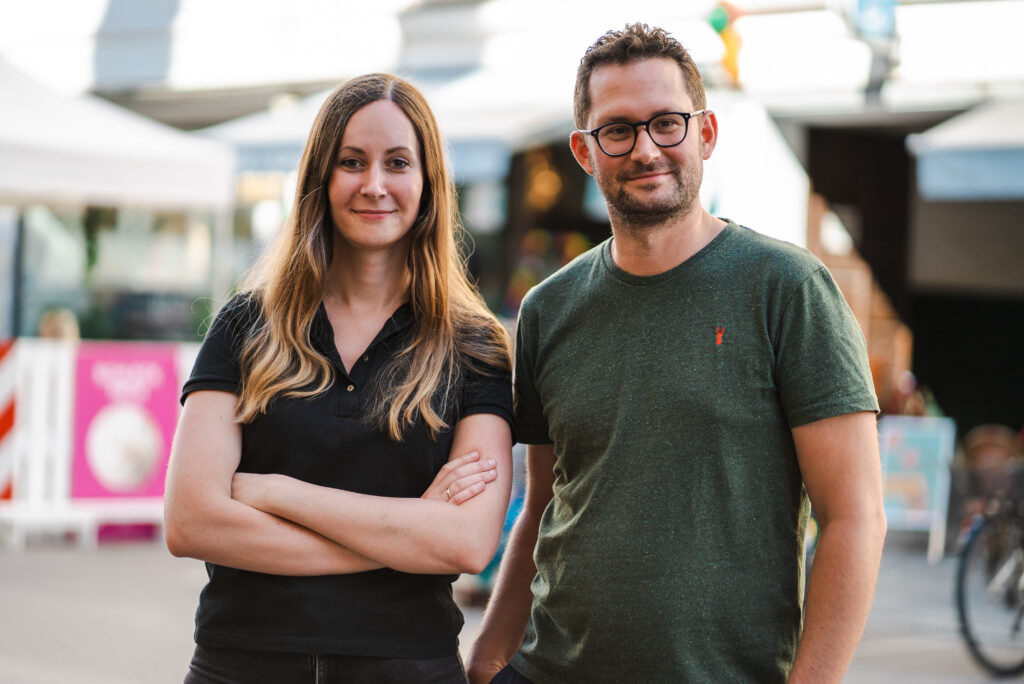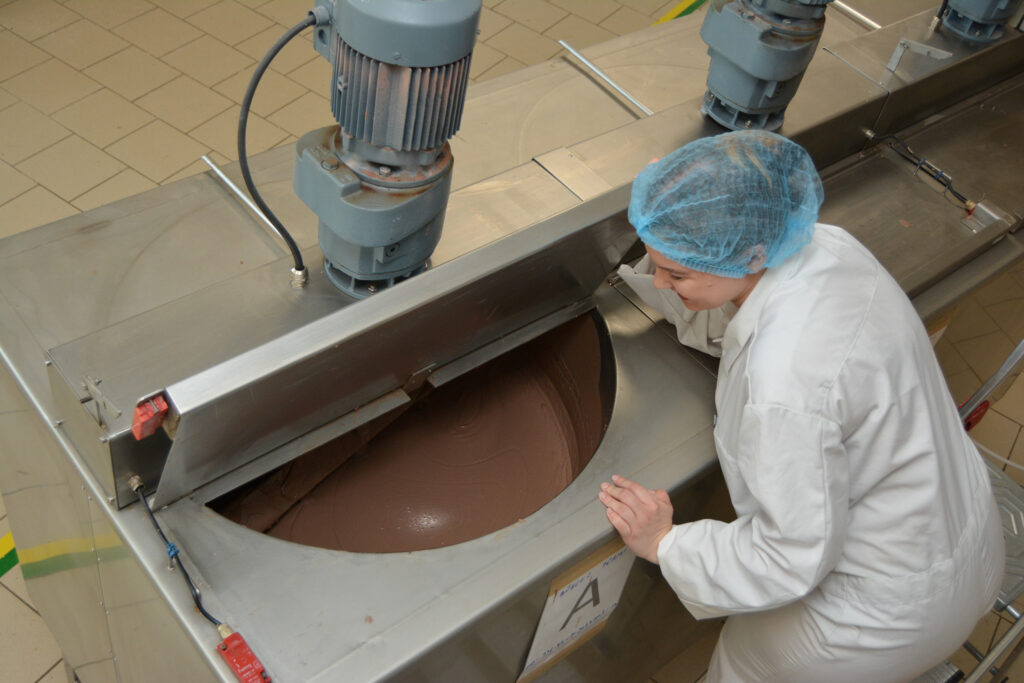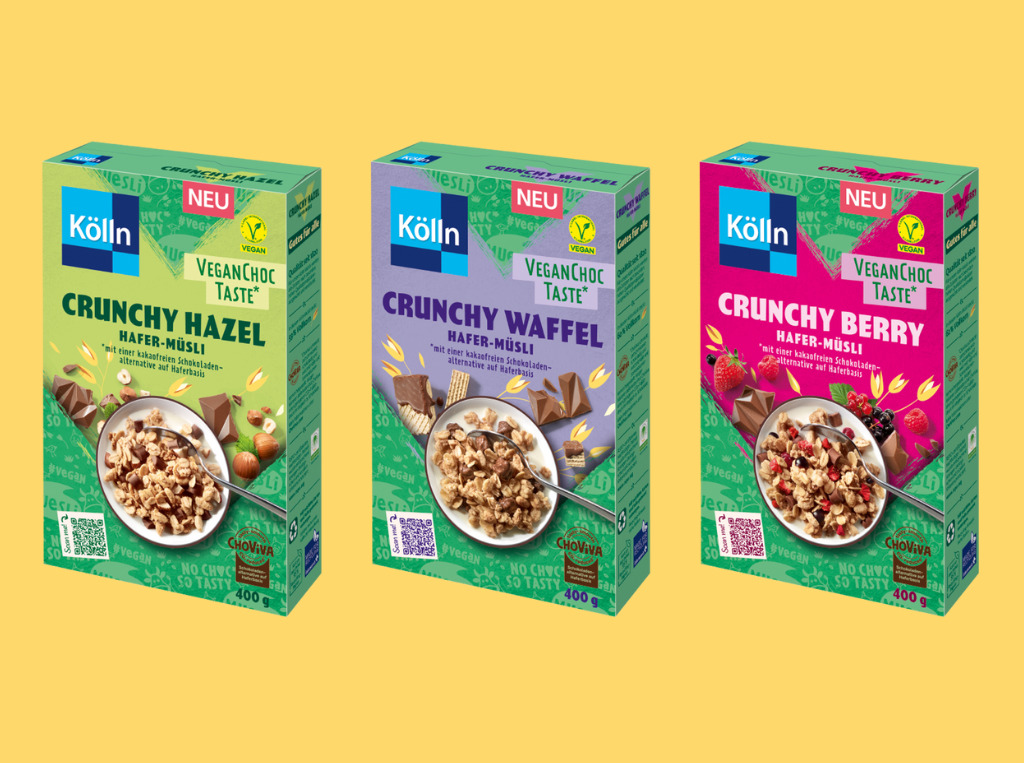5 Mins Read
German alt-chocolate brand ChoViva (formerly NoCoa/QOA) has partnered with oat cereal producer Kölln on a new range of vegan muesli that uses the former’s cocoa-free chocolate. Sibling founders Sara and Maximilian Marquart tell Green Queen about ChoViva’s fermentation process, the use of palm oil, and creating a sustainable alternative to cocoa butter.
ChoViva, which was previously known as NoCoa/QOA and whose parent company is Planet A Foods, has rebranded to “evoke positive associations” about chocolate, and says the new name implies a “chocolatey indulgence for life”. While it launched a range of its cocoa-free chocolates at German online retailer Confiserie Seidl in 2021, the brand now sees itself as a B2B operator, “because by supplying the food industry, we can cover many product areas faster”.
The three new muesli SKUs employ ChoViva’s oat- and sunflower-based chocolate alternative, which was launched in 2021. The flavours comprise Crunchy Waffle, Crunchy Hazel and Crunchy Berry, and are available at participating Rewe stores in Germany from today. The mueslis contain oats and wheat in various forms, alongside sunflower seeds, sunflower oil, shea butter, palm oil, colouring fruit and plant agents, flavour components, glucose-fructose and barley malt syrups, and emulsifiers in varying proportions.
It’s the palm oil that stands out most – given its troubling relationship with chocolate and deforestation. The popular fat, used in close to 50% of all major grocery store food products, is a major driver of tropical deforestation, a threat to wildlife including orangutans and rhinos, and is linked with worker exploitation. It has also been directly connected to forest fires in Indonesia. It also extends to cocoa and chocolate: most mainstream chocolate contains palm oil, which is an inexpensive ingredient.
ChoViva, which uses traditional fermentation and roasting processes to recreate cocoa’s properties, acknowledges that for some of its industry partners, palm oil becomes part of the ingredient list. “If we do so, we support sustainable palm oil cultivation and work with partners who do the same,” CEO Max Marquart tells Green Queen. He confirms that the palm oil used here is RSPO-certified, which comes from certified production units and is produced according to strict ecological and social criteria.

Creating a sustainable alternative to cocoa fat
But ChoViva won’t stop there. Like its alt-chocolate counterparts WNWN and Voyage Foods, the Munich-based brand currently uses shea butter as the main fat for its cocoa-free ingredient. However, it is working on its own alternative to replace cocoa butter. “As we optimise our formulations according to customer requirements, we are using mainly the vegetable fat shea as a transitional measure until we can produce our own ChoViva butter,” reveals CTO Sara Marquart. “A big chunk of our team is working on a fermentation process to convert local feedstock such as beet sugar into cocoa butter.”
She adds: “For some special applications, we couldn’t yet get rid of palm oil due to technical reasons. We try to limit those applications.” But ChoViva is testing out solutions here, too. “We are working on palm oil in the future – after we launch our cocoa butter – since we have product synergies using our own ChoViva butter (instead of cocoa butter) in our products for the benefit of our customers.”
This is something Max alludes to as well: “In the mid-term, our fermentation process will also be able to produce palm oil from local feedstock. As soon as we scale this up, we will replace all plant-based fats that we are using now as an intermediate.” It’s an intriguing concept – startups like Genomatica, C16 Biosciences and Clean Food Group are already thriving in the palm oil alternative space.

“On the way to [developing] our ChoViva butter, we surprisingly ended up having a palm oil alternative first, since this one is easier to nail than cocoa butter when we speak about the product characteristics and their composition,” explains Sara, a former principal scientist at molecular coffee startup Atomo. “Palm oil, however, is so cheap currently, that we might have a hard time commercialising it at first in B2B, as most customers are not willing to pay a premium.”
She adds: “The fats that we produce in-house can be applied as cocoa butter alternatives since they fulfil the same product characteristics as conventional cocoa butter. In other words: cocoa butter alternatives fit better in our product portfolio right now than palm oil, and also have better unit economics.
“With ChoViva butter, we can hit the price point that our customers are used to with conventional cocoa butter, thus offering the benefits of carbon footprint reduction, mitigation of deforestation and offering a local alternative, with short and stable supply chains.”
Multiple industry collaborations and expansion on the way

To develop these fats, the company is tapping into precision fermentation technology, using single-cell oils and fermenting side streams to upcycle those into the ChoViva butter. It’s already supplying this novel fat to initial customers for R&D purposes and feedback. Being a precision-fermented ingredient, it will need to pass the EU’s novel food regulatory approval process, something Sara says the company is working on as it prepares for a broader commercial launch.
ChoViva already has multiple link-ups in the works with well-known brands, which will replace their chocolate with its sustainable alternative. While its current focus is on Germany, Austria and Switzerland, its partnerships with internationally established manufacturers will expand its sales focus in the medium term and open up further markets.
Max says the company, which raised $6M in seed financing in 2021, is well-funded and sales are exceeding its projections. “We have built up our production in Pilsen, and are already producing there in a two-shift operation,” he notes.
And as for the price, ChoViva claims its cocoa-free alternative is already cost-competitive with conventional chocolate. “Besides the price point, it is important for our B2B customers to dismiss cocoa trading in the future, and to rely on short, highly controlled supply chains,” says Max.



